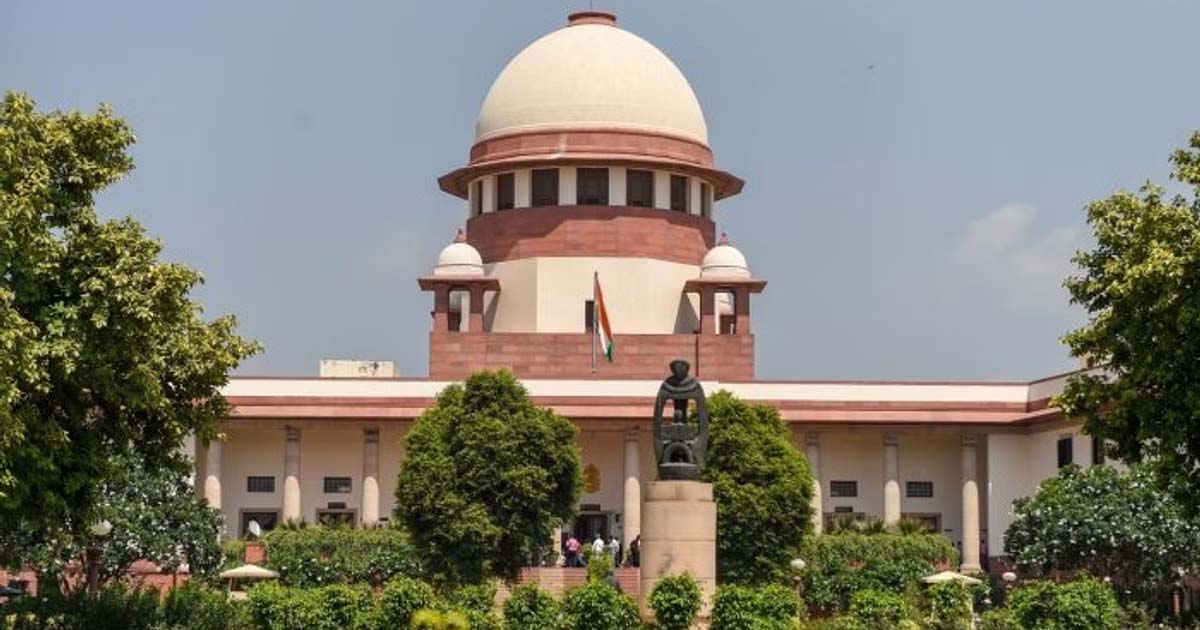In New Delhi, the Supreme Court declined to engage with the assertions put forth by senior counsel and head of the Supreme Court Bar Association (SCBA), Adish Aggarwala, concerning his missive to Chief Justice DY Chandrachud, requesting an autonomous review of the verdict issued by a five-judge constitutional bench in the matter of electoral bonds, specifically concerning the disclosure of the identities of contributors and their financial contributions. Aggarwala communicated with the Chief Justice in his capacity as the chairperson of the All India Bar Association (AIBA).
Appearing virtually before the court, Aggarwala implored the five-judge panel, presided over by the Chief Justice, to consider his correspondence regarding the electoral bonds issue. The Chief Justice reminded him, “Aside from being a senior advocate, you hold the position of SCBA president. You are well-versed in the protocol. You lack standing to mention it…” Aggarwala concurred that it is imperative not to squander the court’s time. “These actions are primarily aimed at gaining attention, and we cannot allow it,” remarked the Chief Justice. Aggarwala expressed compliance with whatever the esteemed justices deemed appropriate. “Mr. Aggarwala, let’s leave it at that. I might have further remarks, which could be somewhat disagreeable. Kindly bring this to a close,” cautioned the Chief Justice.
In his missive, Aggarwala asserted, “Disclosing the identities of corporate contributors and the amounts donated would expose these corporations to potential victimization. There exists a likelihood of them being targeted by those parties that have received lesser or no contributions from them.”
“Furthermore, the prospect of additional harassment cannot be discounted if the identities of corporate contributors and the sums donated to various parties are made public. This would amount to a breach of the assurances provided to them at the time of their voluntary contributions,” the letter added.
He emphasized that, at the time of donation, corporate donors were fully cognizant that their identities, donation amounts, and recipient political parties would not be divulged and would remain confidential.
“This provision of confidentiality was incorporated into the relevant Scheme with the intention of safeguarding donors from victimization by any other political party to which the donor has not contributed under the Scheme,” the letter continued.
He underscored that the constitution bench’s order dated February 15, 2024, mandating sudden disclosures of corporate donors’ identities, donation amounts, and recipient political parties, would adversely affect said corporate donors.
The executive committee of the Supreme Court Bar Association (SCBA) had condemned a letter penned by its president, Adish C Aggarwala, urging President Droupadi Murmu to seek a presidential referral of the apex court’s judgment in the electoral bonds scheme case and to refrain from implementing it unless the top court revisits the matter.
Last week, Aggarwala, in his communication to the president, contended that revealing the identities of corporations that had contributed to different political parties would expose these corporations to potential victimization. The SCBA, distancing itself from Aggarwala’s letter, stated that the entire seven-page missive, printed on the letterhead of the All India Bar Association, appears to have been drafted by Adish C. Aggarwala in his capacity as the chairperson of the All India Bar Association.
“However, it has come to our attention that beneath his signature on the aforementioned letter, he has, among other designations, indicated his position as President of the Supreme Court Bar Association,” stated a resolution issued by the SCBA’s executive committee.
The SCBA’s executive committee emphasized the necessity to clarify that its members neither authorized the president to draft such a letter nor do they endorse his opinions as expressed therein. “The Executive Committee of the Supreme Court Bar Association further perceives this action, as well as its contents, as an attempt to overstep and undermine the authority of the Supreme Court of India and unequivocally denounces the same,” asserted the SCBA’s resolution.




